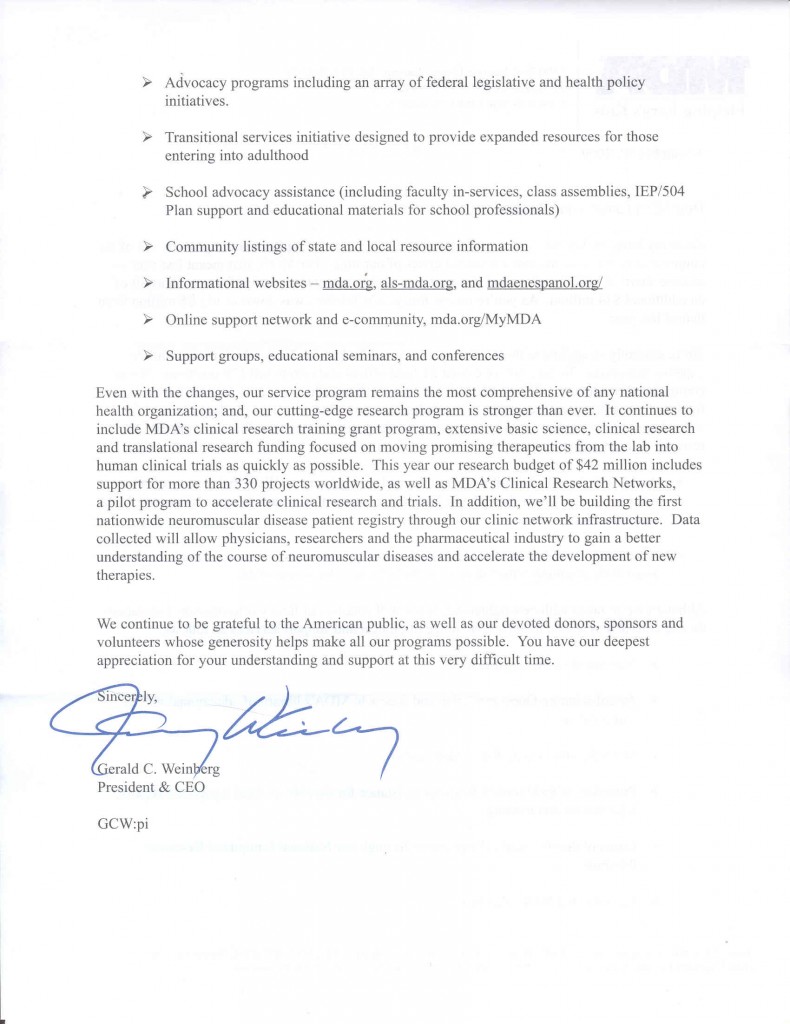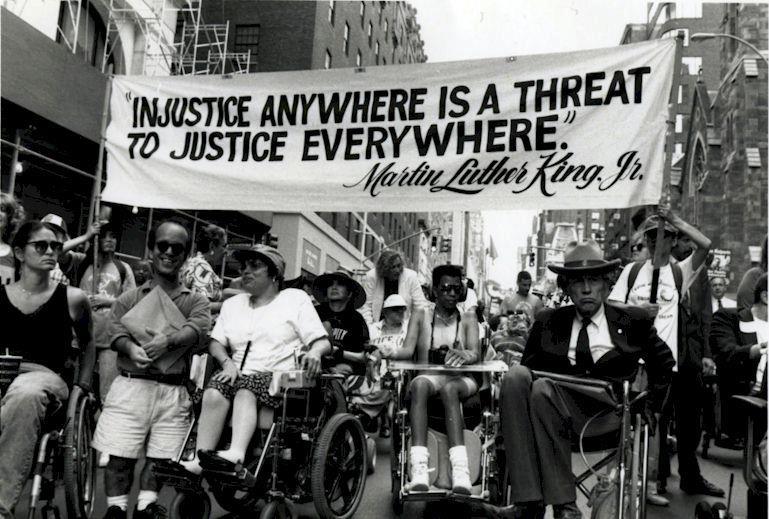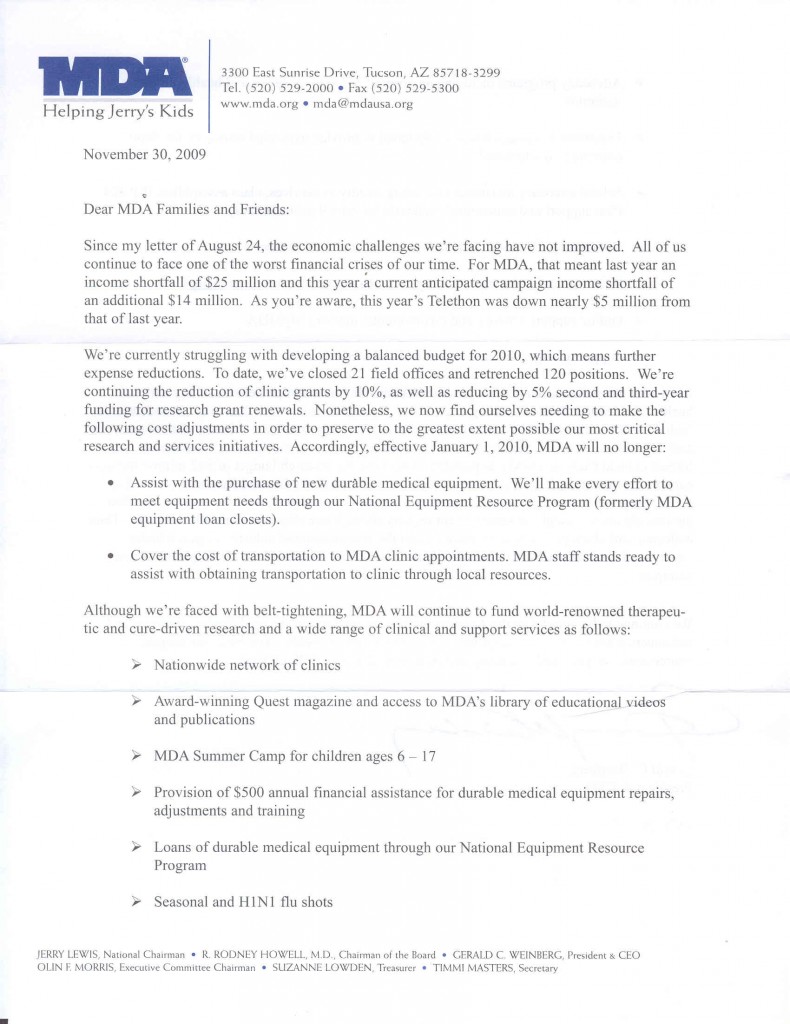Lots of people are, as always, posting about the MDA Telethon this Labor Day weekend (I recommend this piece by Laura Hershey). Usually the focus is on smashing the negative images (pity) that the MDA Telethon often conveys, and that is crucial because the Telethon brings to all corners of the U.S. the most-watched images of disability all year. But I usually focus on the help the MDA does and doesn’t provide, and how misleading the Telethon is about what they do for us “Jerry’s Kids.”
Jerry Lewis has taken a lot of heat for years over comments like “My kids cannot go into the workplace. There’s nothing they can do.” But I’m more concerned with WHY we can’t get into the workplace than with the negative comment itself. We stay at over double the general population’s unemployment rate not just because of “attitudinal barriers” (pity, seeing us as “less than,” and as charity cases, views the Telethon definitely perpetuates) but because we so often don’t have access to education, transportation, and the assistive technology that we need to succeed. Like wheelchairs.
The MDA sent out a letter to recipients last Fall, notifying us of major nationwide changes for fiscal year 2010: they will no longer help buy wheelchairs for “Jerry’s Kids.”

This scanned letter, passed to me by a concerned mom of kids with Duchenne’s, is not publicly available on the MDA web site, nor mentioned during the Telethon. I can only hope they don’t continue saying they provide wheelchairs on the Telethon.
The needs of those with MD are being met less and less by the MDA, and less and less by the state, cutting back brutally now thanks to the Great Recession. Now, future “Jerry’s Kids” will never again get a wheelchair with help from the MDA. Please look at these posts from the MDA forums about the changes, and MDA’s response.
I get no help whatsoever from the MDA, no matter how hard I have tried to work with them. The NYU MDA clinic essentially turned me away this year, the clinic director telling me “we don’t do metabolic disease” (nevermind that it was the Mobile, AL MDA clinic that diagnosed me with mitochondrial myopathy when I was a small child, and that their national goodwill ambassador Mattie Stepanek had it). Then, in a classy move, they referred me to a nonexistent “metabolic clinic” that when we called, said there is no such clinic. I’m totally open to discussion with MDA if they want to make this right, I would meet with an MDA representative if given the chance; but I’m not optimistic; their emphasis is simply NOT on those of us who’ve managed to survive into adulthood.
The charity model isn’t all bad; it can make a big difference in the lives of people with disabilities. Just look at the Islamic world, where people with disabilities often are getting more help (both physical and monetary) from their mosque than what we get from Medicaid! I got my first wheelchair from New Orleans MDA. But the MDA is really no longer a service charity, it’s research research research, cure cure cure, cures we’re told on the Telethon are only 5-10 years away but 20 years later are nowhere to be found.
A real charitable organization could make a huge difference in our lives, filling the enormous gaps we fall into every day, an understanding voice that could give hope for better quality of life after yet another Medicaid rejection of services. These diseases are no easy path. I REALLY NEED THE HELP! Just a shoulder to lean on and a little coordination would go a long way. But MDA is not that charitable organization, and it takes up so much “market space,” no competing nonprofit can gain the traction to provide this desperately needed assistance. That is my beef with the MDA, and I wish the discussion among disability rights circles was more in this direction.
Nick
See also, my blog about last year’s Telethon, focusing on dismantling misleading claims made on the Telethon.

